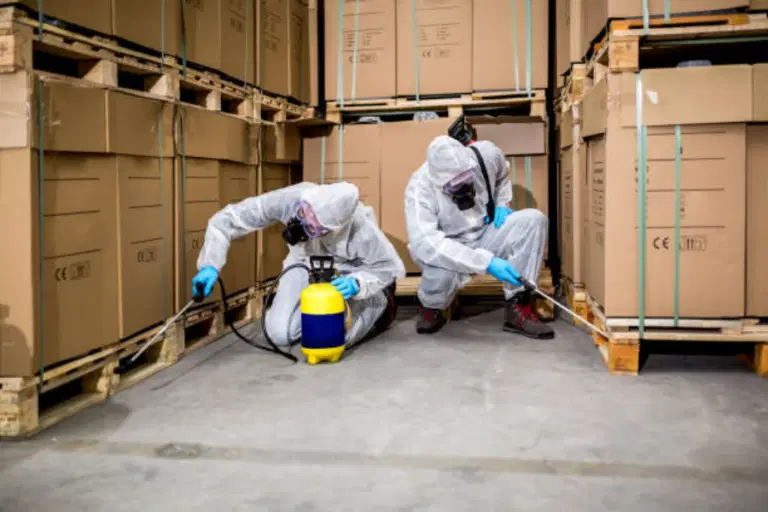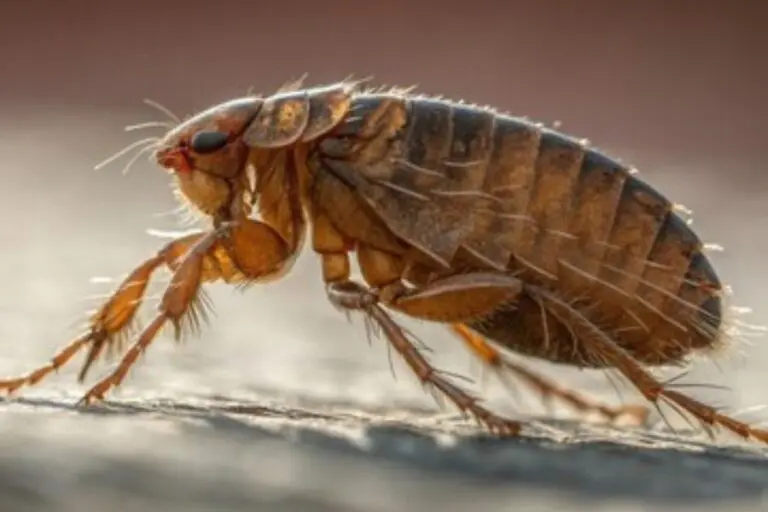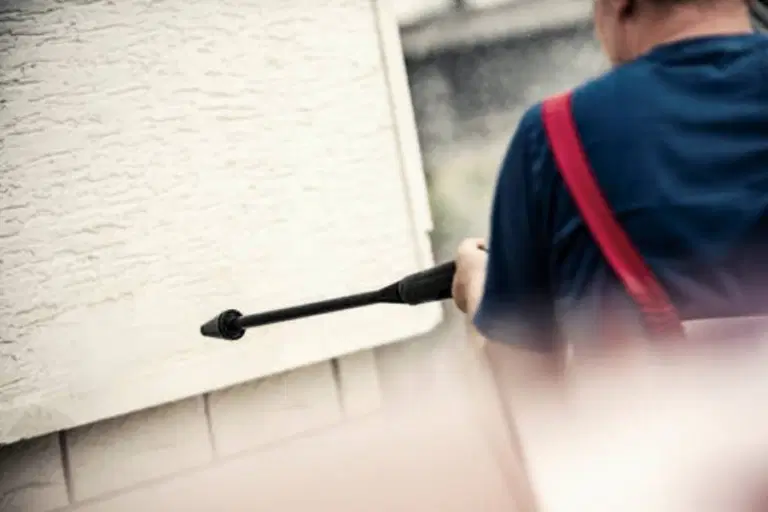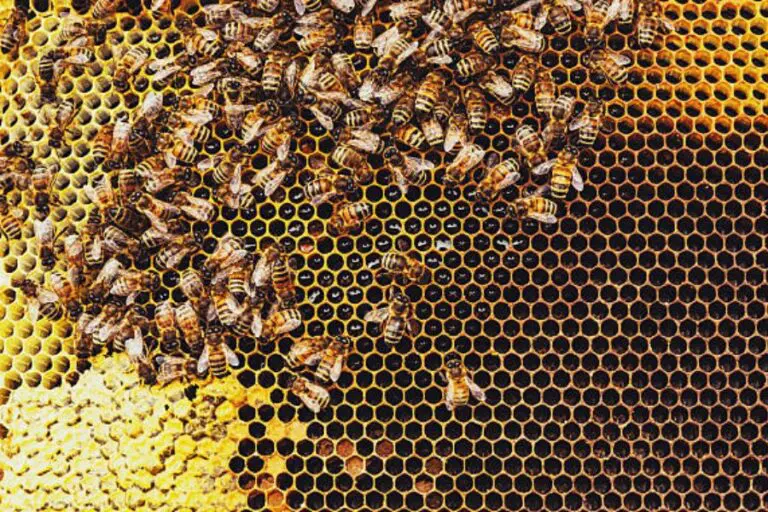Routine Pest Control: What Business Owners Should Know
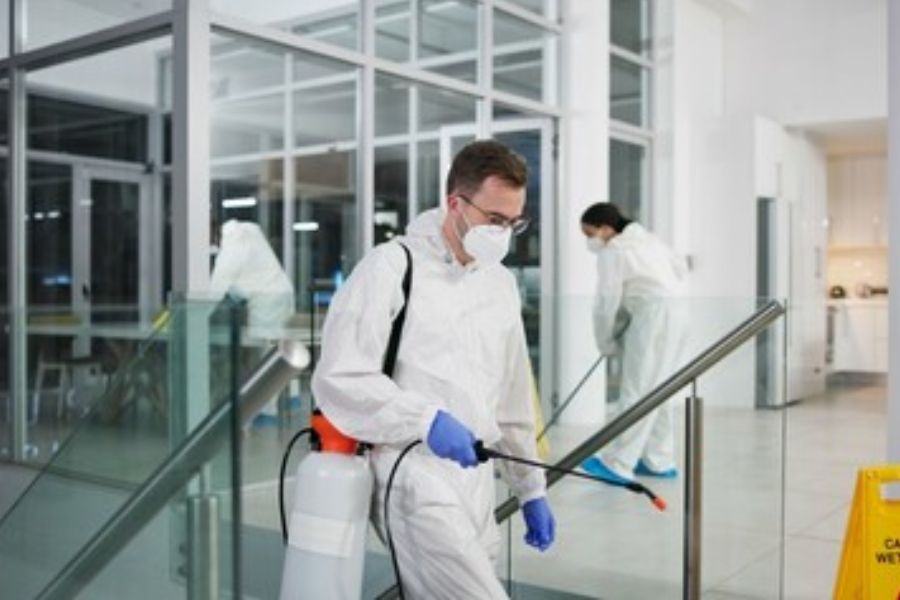
Pest control is essential to maintaining health, safety, and legal compliance across various commercial environments, including food establishments, hospitals, schools, and offices. Effective pest control goes beyond eliminating visible pests; it is crucial in preventing infestations, protecting public health, and ensuring regulatory compliance. Failing to meet pest control standards for UK businesses can result in severe legal repercussions, financial losses, and reputational damage.
This guide explores the key aspects of routine pest control compliance, focusing on legal obligations, the importance of documentation, safety considerations, and tailored pest management solutions. GoKill Pest Control is committed to helping businesses meet these requirements with comprehensive, industry-specific pest control services.
Is Pest Control Legally Required for Food Businesses, Hospitals, and Schools?
Yes, pest control is legally required for UK food businesses, hospitals, and schools. These environments are considered high-risk due to their direct impact on public health, and stringent regulations mandate that they implement effective pest management systems.
Legal Requirements for Food Businesses
The Food Safety Act 1990: This legislation mandates that all food businesses ensure food is safe for consumption. Effective pest control is integral to preventing contamination from pests like rodents, insects, and birds.
Food Hygiene (England) Regulations 2013: Food businesses must maintain clean and hygienic premises, including taking all necessary measures to prevent pest infestations. Regular pest control inspections are essential to comply with these rules.
Hazard Analysis and Critical Control Points (HACCP): Food businesses must implement HACCP systems to identify and control potential hazards, including pest activity. A robust pest control plan is a critical part of HACCP compliance.
Legal Requirements for Hospitals and Healthcare Facilities
The Health and Social Care Act 2008 (Regulated Activities) Regulations 2014: Healthcare facilities must protect service users from health risks, including those posed by pests. Routine pest control is essential to maintain sterile and safe environments, particularly in sensitive areas like operating rooms and patient wards.
Care Quality Commission (CQC) Standards: The CQC regulates healthcare services in England and requires that facilities manage environmental risks, including pests. Failure to comply can lead to enforcement actions.
Legal Requirements for Schools and Educational Institutions
The Health and Safety at Work Act 1974: This act requires schools to ensure the health and safety of staff, pupils, and visitors. Pest control is a fundamental part of managing risks related to health and hygiene.
Ofsted Requirements: Ofsted inspects schools to assess the overall safety and cleanliness of the environment. Poor pest control practices can negatively impact inspection outcomes.
Why Routine Pest Control Is Essential for Compliance
Routine pest control ensures that businesses not only meet legal requirements but also maintain high standards of hygiene and safety. Key benefits include:
Preventing Legal Penalties: Non-compliance with pest control regulations can result in fines, legal action, and even business closures.
Protecting Public Health: Pests carry diseases and pose serious health risks. Effective pest control minimises these threats.
Maintaining Business Reputation: Regular pest control helps prevent infestations that could harm a business’s reputation and customer trust.
At GoKill Pest Control, we provide industry-specific solutions to help businesses in the UK meet all pest control legal requirements. Our comprehensive services include routine inspections, detailed reporting, and tailored treatment plans to ensure full compliance and peace of mind.
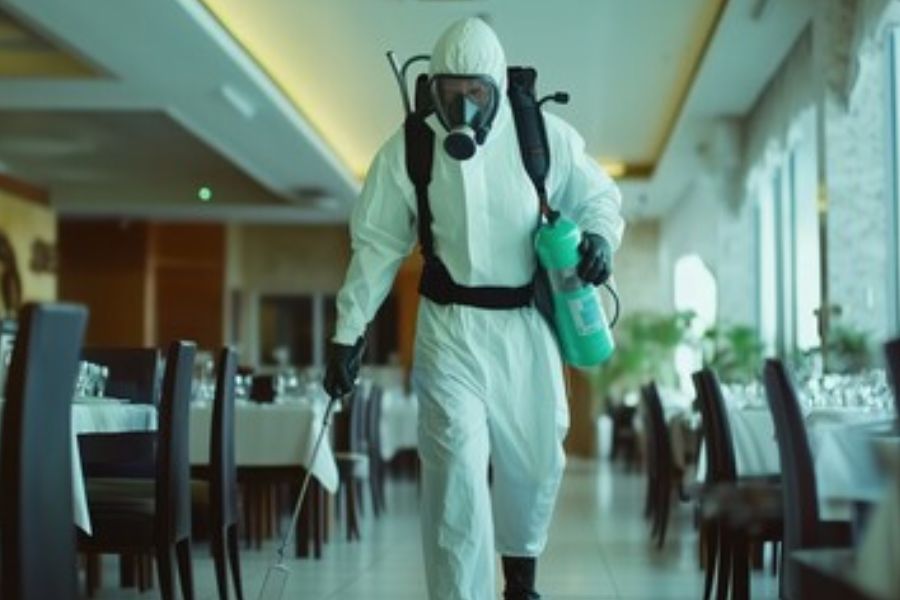
What Documentation or Reports Do Pest Control Companies Provide After Routine Visits?
Documentation is a critical aspect of routine pest control compliance. After each visit, professional pest control companies like GoKill Pest Control provide detailed reports that track pest management activities and serve as essential records for regulatory inspections and audits. Accurate documentation helps businesses comply with legal requirements and ensures effective pest management practices.
Key Types of Documentation Provided:
Pest Control Service Report:
- A comprehensive report detailing the service’s date, time, and location.
- Description of the pest activity observed, including the types of pests identified.
- Summary of the inspection findings, highlighting areas of concern and recommendations.
- Details of treatments applied, including chemicals used, application methods, and safety precautions.
Pest Activity Log:
- A record of pest sightings, evidence of pest activity (such as droppings or nests), and actions taken.
- This log is regularly updated during each routine pest control visit to monitor trends and effectiveness over time.
Site Risk Assessment:
- An assessment of the premises to identify potential pest risks and vulnerabilities.
- Includes recommendations for structural improvements, sanitation practices, and environmental modifications to reduce pest attractants.
Treatment Plans and Safety Data Sheets (SDS):
- Documentation of the pest control plan implemented, including the frequency of visits and specific control measures.
- Safety Data Sheets should be provided for any chemicals used, ensuring compliance with the COSHH (Control of Substances Hazardous to Health) Regulations.
Corrective Action Reports:
- Reports that outline any issues identified during inspections and the corrective actions required to address them.
- Helps businesses stay proactive in maintaining pest-free environments.
- HACCP Compliance Records (for Food Businesses):
- Documentation tailored to meet HACCP requirements, including monitoring logs, pest control maps, and verification records.
- These records are crucial during food safety audits and inspections.
Importance of Pest Control Documentation for Compliance:
- Regulatory Inspections: Environmental Health Officers (EHOs), the Care Quality Commission (CQC), and Ofsted inspectors often request to review pest control documentation during audits.
- Legal Protection: Comprehensive documentation can serve as evidence of due diligence in the event of a legal dispute or health-related incident.
- Continuous Improvement: Detailed records allow businesses to track pest activity trends, evaluate the effectiveness of control measures, and make informed decisions.
How GoKill Pest Control Supports Compliance
At GoKill Pest Control, we provide comprehensive documentation after every routine pest control visit, ensuring businesses fully comply with UK regulations. Our reports are clear, detailed, and tailored to meet the specific needs of each industry. We also offer digital record-keeping options, making it easy for businesses to access and manage their pest control documentation anytime.
Are Routine Pest Control Treatments Safe for Employees, Customers, and Sensitive Environments Like Hospitals and Schools?
Routine pest control treatments are designed to be safe for employees, customers, and even sensitive environments such as hospitals and schools. Professional pest control companies, like GoKill Pest Control, follow strict safety protocols and use approved products that meet UK regulatory standards to minimise health risks while effectively controlling pests.
Key Safety Considerations for Routine Pest Control:
Regulatory Compliance:
- Pest control products used in the UK must comply with the Control of Pesticides Regulations 1986 (COPR) and Biocidal Products Regulation (BPR). These regulations ensure that all products are thoroughly tested for safety and efficacy.
- COSHH (Control of Substances Hazardous to Health) Regulations govern the safe use of chemicals, requiring detailed risk assessments and safety measures during application.
Use of Low-Toxicity and Targeted Treatments:
- Modern pest control solutions prioritise low-toxicity treatments, reducing risks to humans and the environment.
- Targeted applications, such as gel baits, traps, and non-chemical methods, are preferred in sensitive environments like healthcare facilities and schools.
Risk Assessments and Safety Protocols:
- Prior to any treatment, pest control professionals conduct thorough risk assessments to identify potential hazards.
- Safety protocols are established to protect vulnerable individuals, including children, patients, and those with respiratory conditions.
Non-Chemical and Integrated Pest Management (IPM) Approaches:
- IPM strategies focus on prevention, monitoring, and control using a combination of physical, biological, and chemical methods.
- Non-chemical solutions, such as traps, exclusion techniques, and sanitation improvements, are effective and safe for sensitive environments.
Clear Communication and Safety Instructions:
- After treatments, pest control providers issue safety guidelines, including re-entry times if required and any precautions needed.
- Clear labelling and documentation ensure that employees and facility managers know any treated areas.
How GoKill Pest Control Ensures Safety
- Certified Technicians: All our technicians are trained and certified under the British Pest Control Association (BPCA), ensuring they adhere to the highest safety standards.
- Tailored Solutions: We customise our routine pest control plans based on the specific needs of the business, prioritising safety in healthcare, educational, and food-related environments.
- Ongoing Monitoring: Continuous monitoring and follow-up visits ensure the effectiveness of treatments while maintaining a safe environment.
By working with Go Kill Pest Control, businesses can be confident that their routine pest control programs are effective and safe for everyone on the premises.
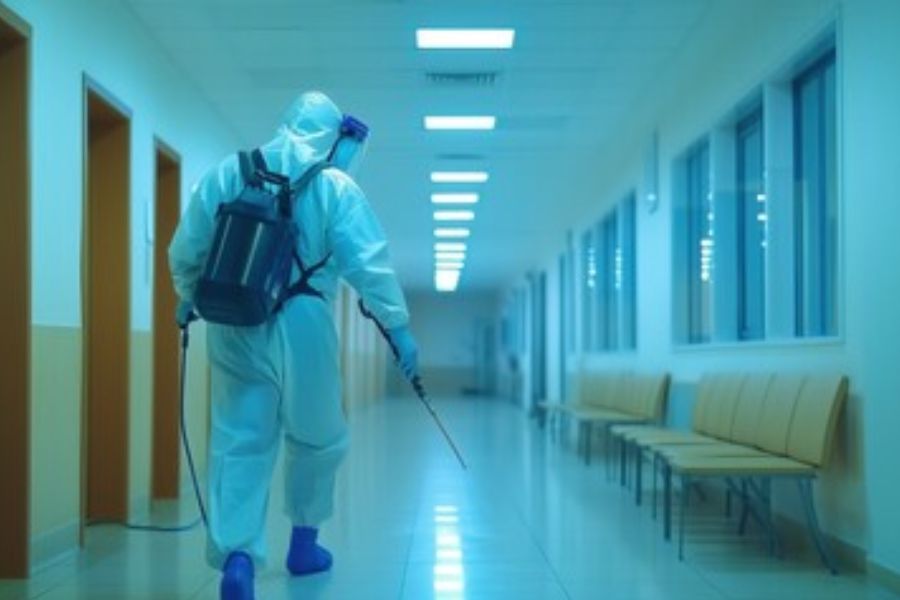
How Can Pest Control Services Be Customised to Meet the Unique Needs of My Business?
Pest control services are not one-size-fits-all. Every business has unique needs based on its industry, size, location, and specific pest risks. At GoKill Pest Control, we understand the importance of providing tailored routine pest control solutions to ensure maximum effectiveness and compliance with industry regulations.
Key Factors for Customising Pest Control Services:
Industry-Specific Requirements:
- Food Industry: This industry requires strict compliance with HACCP guidelines, focusing on preventing contamination from pests like rodents, flies, and cockroaches.
- Healthcare Facilities: Prioritise non-toxic and discreet treatments to maintain sterile environments without disrupting patient care.
- Schools and Educational Institutions: Emphasise child-safe treatments and minimise disruptions to learning environments.
- Warehouses and Industrial Sites: Focus on large-scale pest monitoring systems to manage rodents, birds, and stored product pests.
Risk Assessments:
- Comprehensive site inspections to identify potential pest risks, entry points, and environmental factors contributing to infestations.
- Risk assessments help develop targeted treatment plans that address specific vulnerabilities.
Flexible Scheduling:
- Routine pest control visits can be scheduled during off-peak hours to minimise disruptions to daily operations.
- Emergency response services are available for urgent pest issues that require immediate attention.
Integrated Pest Management (IPM) Strategies:
- IPM focuses on long-term prevention through habitat modification, exclusion techniques, and minimal pesticide use.
- Combines physical, biological, and chemical control methods for a comprehensive approach.
Customised Reporting and Documentation:
- Tailored documentation to meet regulatory requirements for specific industries, including detailed service reports, risk assessments, and compliance records.
- Digital reporting systems for easy access to pest control data and trend analysis.
How GoKill Pest Control Customises Services
- Consultation: We begin with a detailed consultation to understand your business’s pest control needs and compliance requirements.
- Tailored Plans: Our experts develop customised routine pest control plans that align with your operational goals and regulatory obligations.
- Ongoing Support: Continuous monitoring, regular reviews, and adjustments to treatment plans ensure long-term pest control.
What Types of Pests Are Commonly Targeted in Commercial Pest Control Services?
Commercial environments face various pest threats that impact health, safety, and business operations. Routine pest control is essential to managing these risks effectively, targeting common pests that are not only a nuisance but also pose significant health and structural hazards.
Common Pests in Commercial Pest Control:
Rodents (Rats and Mice):
Risks: Rodents are known carriers of diseases such as leptospirosis, salmonella, and hantavirus. They can also cause extensive damage to property by gnawing on electrical wires, insulation, and structural materials.
Control Methods: Routine inspections, bait stations, traps, exclusion techniques, and sanitation measures are key strategies for rodent management.
Insects:
Cockroaches: Thrive in food establishments, spreading bacteria like E. coli and salmonella. They contaminate food, utensils, and surfaces.
Flies (House Flies, Fruit Flies, Drain Flies): Flies pose a high contamination risk, transferring pathogens from waste to food preparation areas.
Ants: While not always hazardous, ants can become problematic in food-related industries, leading to contamination and infestations.
Stored Product Insects (SPIs): Beetles, moths, and weevils infest stored food products, causing significant losses in food storage facilities.
Birds (Pigeons, Seagulls, Starlings):
Risks: Birds can cause structural damage, spread diseases through droppings, and create slip hazards.
Control Methods: Bird-proofing measures like netting, spikes, deterrent systems, and population control strategies are essential in urban and industrial settings.
Crawling Insects (Spiders, Silverfish, Bed Bugs):
Bed Bugs: They are a significant issue in the hospitality and accommodation sectors, causing discomfort to guests and reputational damage to businesses.
Silverfish and Spiders: While generally harmless, large infestations can indicate broader environmental issues.
Wasps and Bees:
Risks: Wasps are aggressive and can pose serious health risks, especially in food establishments and outdoor dining areas. Due to their environmental importance, bee populations are usually relocated rather than exterminated.
Why Routine Pest Control is Crucial
Prevent Infestations: Regular monitoring helps detect early signs of pest activity before they escalate.
Health and Safety Compliance: Ensures businesses meet UK health and safety regulations, reducing the risk of legal issues.
Protect Reputation: A pest-free environment enhances customer confidence, especially in the hospitality, healthcare, and food sectors.
How GoKill Pest Control Targets Common Pests
At GoKill Pest Control, we tailor our routine pest control services to the specific needs of each business. Our comprehensive approach includes:
Integrated Pest Management (IPM): These combines prevention, monitoring, and control methods to manage pests sustainably.
Regular Inspections: Identifying pest activity, entry points, and conditions conducive to infestations.
Targeted Treatments: Using safe, effective methods tailored to the type of pest and business environment.
Compliance Support: Ensuring businesses meet all regulatory requirements through detailed documentation and proactive management effectiveness.
